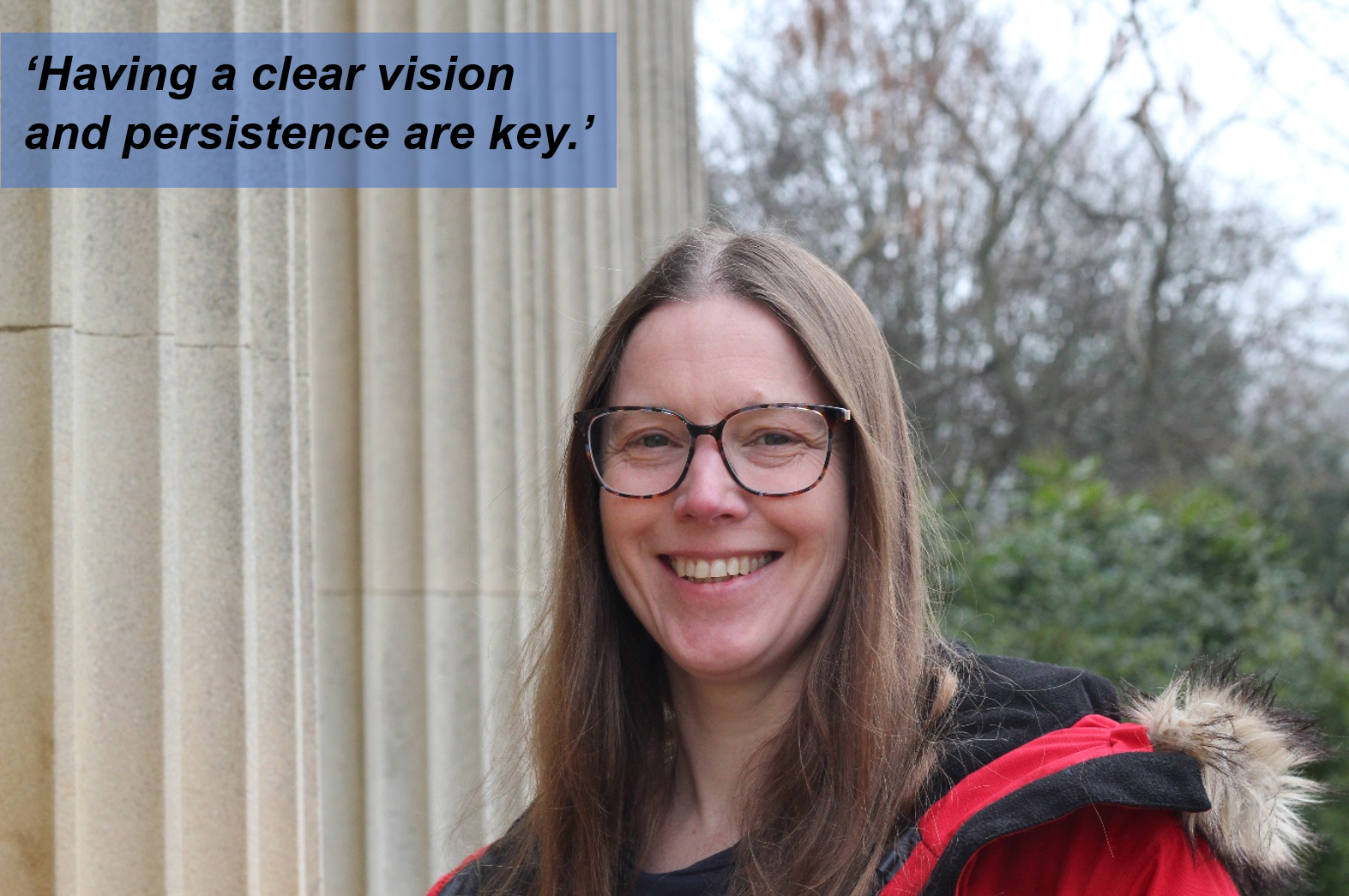An Interview with Dr Catherine Wilson
Photo credit: Dr Sara Pensa
Dr Catherine Wilson is an Associate Professor in the Department of Pharmacology and a Fellow, at Wolfson College. Cathy completed her PhD at the Institute of Medical Genetics at Cardiff University and then moved to The Wellcome Trust Sanger Institute for her first post-doctoral stint. Next, Cathy moved to the Department of Biochemistry at the University of Cambridge before becoming a research group leader in the Department of Pharmacology in 2019.
Who are you and what do you work on?
I am Cathy Wilson, and I am an Associate Professor in the Department of Pharmacology in Cambridge. My laboratory works on Myc. We think about novel ways to inhibit Myc in a cancer setting and develop mRNA therapeutics to try to harness its proliferative ability for complex tissue regeneration.
What do you love about your job?
The variety, and working with groups of like minded, inquisitive, scientists. The job is incredibly rewarding.
How/why did your research lead you to Cambridge?
I moved to Cambridge for my first post doc at the Wellcome Trust Sanger Institute. I thought I would only be in Cambridge for a few years, and I found it difficult adjusting to the flat landscape and the distance from the sea. However, being part of the amazing science that was happening all around me in Cambridge kept me here. Now, I embrace the wide vistas (and easy cycling) and get my mountain fix when I visit my family in Wales.
Other than science what is most important for you in life?
Family life and swimming.
Do you have any advice to early-career women scientists?
Having a clear vision and persistence are key. Surround yourself with positive people who bring each other up and inspire each other to progress. When I was a post doc, I was lucky enough to work with a group of amazing and positive scientists. We are all still great friends, despite living on many continents.
Did you have to face any hurdles as a woman in science?
Just the usual, juggling child rearing and work is very demanding – pick a supportive partner!
What/Who first sparked your interest in Science?
My dad is the main reason for my passion for science. He was a scientist and lepidopterist on the side. As a child, I would spend hours in the garden each day watching and recording the changes that would happen through the seasons. I loved the succession of spring flowers, such as the first sight of snowdrops and crocus, followed by daffodils, bluebells, and tulips. I would watch the insects and birds and wonder at the amazing adaptations. Dad would catch various insects and we would spend time watching them. Even now, when I visit my parents, Dad gets the moth trap out and my children get to experience the joy you feel when you open the trap in the morning and wonder at beautifully coloured catches. Of course, we let them all go.
When did you decide to become a research scientist?
As far back as I can remember, research was the only job for me. There was never anything else I could imagine myself doing.
Why is science fun?
So many reasons. Its amazing to be one of the first humans in the world to conceptualize and test ideas. Science is beautiful - looking down the microscope at cells never fails to please me. I still get a buzz out of the simplest of experiments, such as extracting DNA and seeing it precipitate right before my eyes.
What and when was the last experiment you did in the lab?
I love being in the lab, but unfortunately, I do not get the time to do experimental work as much as I would like. I get excited when my lab needs my help and I get to diarise a bit of lab work. The most recent experiment I assisted with was to cut some very thin paraffin sections of tumours and put these onto glass slides so that we could perform immunofluorescent staining and look down the microscope at the cells for specific protein localisations.
If you were to choose a laboratory superpower what would it be?
When I worked in the lab, the superpower I would have wanted is ‘molecular vision’, so that I could see correct cloning of fragments or PCR reactions happening. But now a more practical superpower for me would be reading manuscripts like Johnny 5 from Short Circuit (an 80s reference!).
Have you had any embarrassing scientific moments?
Too many to count and too embarrassing to mention!
How do you relax?
Swimming, swimming, and more swimming! It's incredible how, after a long day at work, I can dive into the pool and swim back and forth. All my stress melts away, and I feel good with the world once again.
How would you like to be remembered?
I would like to be remembered as fair, pragmatic, but also a bit fun.

